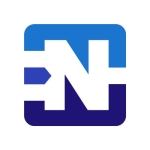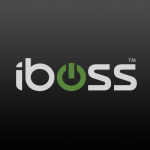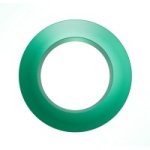What is our primary use case?
The primary use case is for security purposes, mainly at the gateway level and for internal security, such as virtual training. We also use it for cybersecurity and internal communication, like having a portal. The main goal of implementing the product is to resolve security problems.
How has it helped my organization?
We have seen benefits. Recently, Sophos Firewalls and Palantir have also entered the market. However, FortiGate provides a higher throughput at a lower cost than these features and licensing. Our company acts as an integrator, and we work based on the customer's needs and requirements.
What is most valuable?
Fortinet FortiGate is easy to use. Anyone can easily maintain the box in small to large organizations. Even if we configure and hand it over to them, they can easily consider and register policies. And it's easy to monitor the end-to-end network through the firewall.
What needs improvement?
There are mainly two areas of improvement in Fortinet FortiGate— the licensing cost and the timing of upgrading licenses for boxes. FortiGate's renewal cost is quite high, and our customer care team also receives complaints about it. The renewal part of the firewall is expensive. If a customer pays for the license in advance, they may lose their privileges.
For example, if the license of a box expires in one or two months, and the customer wants to upgrade, there are three to four months between the operation and the end of the current license. If I purchase a new license, it will only take effect from that date. So, it fails in the backward fetch, and I am currently busy setting it up. But if the customer is not processing the card for six months, they will not benefit from the system.
Buyer's Guide
Fortinet FortiGate
January 2026
Learn what your peers think about Fortinet FortiGate. Get advice and tips from experienced pros sharing their opinions. Updated: January 2026.
880,255 professionals have used our research since 2012.
For how long have I used the solution?
I have been using Fortinet FortiGate for two to three years.
What do I think about the stability of the solution?
I would rate stability a nine out of ten. It's a stable product. For the most part, it's very reliable.
What do I think about the scalability of the solution?
It is also a scalable solution. However, as integrators, the scalability depends on us. There are many options available, and we can choose the size of the box based on our requirements.
How are customer service and support?
The customer service and support are very good. Once we create a ticket, we can contact them using the ticket number, and they will provide the support we need. As for the contact names, there is no rate, but there are more challenges.
How would you rate customer service and support?
Which solution did I use previously and why did I switch?
We have used Sophos Firewall, Check Point Power EOL, and others. But none of them were like FortiGate. When we upgrade the license, it shows another one, two or three years from that date.
How was the initial setup?
There are no challenges in the initial setup. The people required to deploy the situation are based on the customer's expertise. We handle various types of configurations, and sometimes there are additional requirements with load balancers on top of the firewalls. We need to integrate these firewalls with that ALG.
Generally, we consider security as a separate thing. These firewalls and the LOBs will take care of some further issues based on the customer's requirements. For smaller organizations, one person can provide or ensure a sort of service. We will need three more administrators or developers if there is more traffic or high-cost tech.
What about the implementation team?
Generally, most of the customers maintain their solution on-premises, not on the cloud. I am a technical guy. I am involved in deploying the solution to our customers. I take care of the HCLM upgrade, inflation rate consideration, automation, and other technical aspects of the solution.
We evaluate the area first and then proceed with the implementation by creating a DMZ zone and policies such as CRM and CAP.
What's my experience with pricing, setup cost, and licensing?
FortiGate is a bit pricey, but its unique features and specifications make it an excellent option for certain customers.
As an integrator, we have observed that the licensing cost and the upgrade process are important considerations. When we purchase a new license for one or three years and upgrade it to the existing box, the expiry date does not change from the original. It can create a gap of three, eight, or even twelve months for the customer. Consequently, they buy another box instead of going through the ticket process to get it fixed.
Which other solutions did I evaluate?
We definitely explore the options. We always understand the customer's requirements first and then offer solutions accordingly. We ask what the customer needs and what their budget is. If their budget is INR 10,00,000, and we find a product that matches their requirements, we will offer it. If FortiGate provides the same features and throughput but costs INR 11,00,000, we might still offer it to the customer. However, if FortiGate doesn't match the customer's requirements, we won't suggest it.
So the main differences between products are the features and specifications. If a product has the same throughput and features as another product but costs more, we may not suggest it to the customer.
What other advice do I have?
The challenge is licensing. Hardware-wise, it's supportive, and the support is good. But the licensing and renewal costs should be lowered, and renewing the license and data for the new license is tough. So, only for licensing, we face challenges. I would rate it a seven.
We have many boxes, and we have changed all the boxes to other products because of this licensing factor only. Even for FortiGate, such a thing happens. If I have a hundred boxes and I want to renew the license, they suggest taking new boxes with three or four at least. So that is why customers are not liking FortiGate. They could provide the same license card along with the box, which is why customers are unhappy.
Overall, the product is a four out of ten because scalability, box performance, and support are all great. However, once it's commercially used, you can only use this box; no other options are available.
We can recommend it, but FortiGate's ability to capture the market, fix the order, and meet the requirements or opportunities is also important. As an integrator, we don't have any issues with it.
Which deployment model are you using for this solution?
On-premises
Disclosure: PeerSpot contacted the reviewer to collect the review and to validate authenticity. The reviewer was referred by the vendor, but the review is not subject to editing or approval by the vendor. The reviewer's company has a business relationship with this vendor other than being a customer:


















